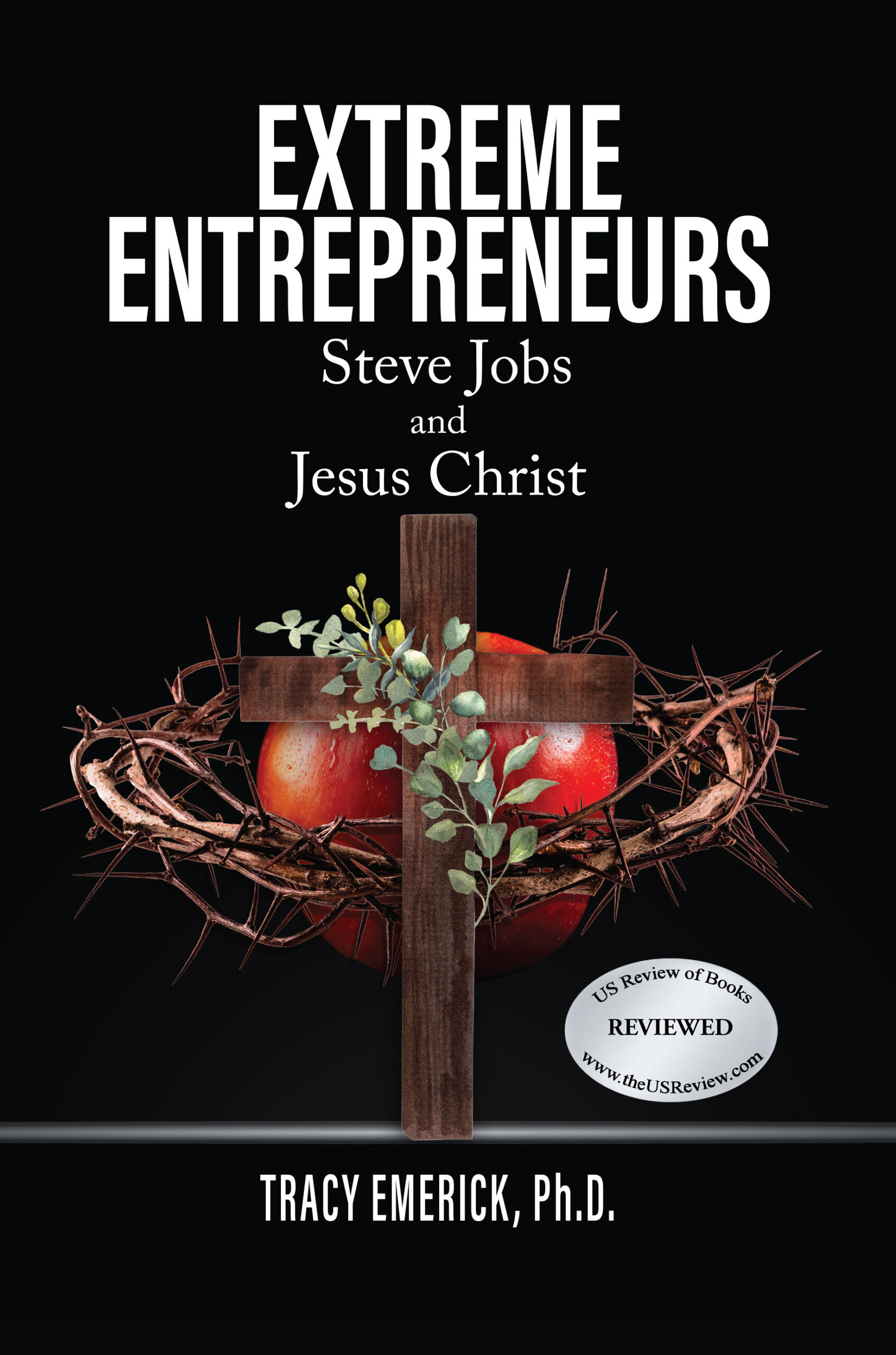The sub-title of Tracy Emerick’s book EXTREME ENTREPRENEURS is “Steve Jobs and Jesus Christ,” which naturally makes the reader curious about how the author will link these two individuals as entrepreneurs. The answer, it turns out, is quite simple: The author simply redefines the term “entrepreneur” to suit his argument. Indeed, he does this for several other common words, such as “enterprise,” “profit,” and “soul.” To get past the problem of portraying Jesus as an entrepreneur, when there are perfectly sound descriptions such as “religious leader” or even “theologian,” Emerick divides entrepreneurs into three types: basic (such as McDonald’s franchiser Ray Kroc), advanced (Amazon’s Jeff Bezos) and extreme (Jobs). “The goal of extreme entrepreneurs is to provide people with new experiences,” Emerick writes, “…and they don’t really care if they make any money.” From this premise, he argues that “Steve Jobs put easy-to-use technology in the hands of humans, to be used for life enhancement…Jesus Christ changed the paradigm of life from one of fear to love…” So, while Jobs focused on things, Emerick argues, Jesus focused on people. He then asserts, “Are we engrossed in using the things of this world to create a significant change for other people? If we chose the latter, it only meant [sic] that we have successfully combined the mindset of out two extreme entrepreneurs.”
These forced arguments define the latter two-thirds of the book (the first third comprises a good, if standard, description of entrepreneurship and entrepreneurs). Emerick aspires to present intellectual rigor by using charts and citing Plato and even including three pages of Apple code. But his Christian agenda prevents him from being factual. For instance, he credits Jesus’s disciples for Christianity’s present-day influence, ignoring the key fact that the Roman emperor Constantine converted in 312 AD, which greatly increased Christians’ power. Emerick also asserts that the Bill of Rights is based on Jesus’s teachings, even though the founding fathers never mentioned Jesus once in the Federalist Papers. Emerick’s intellectual sloppiness is reflected in the book’s prose, which clearly was not subjected to an editor’s eye, Grammarly, or even a Word check. Thus, sentences like the following permeate its pages: “The soul is broad in definition and it is just important that we learn each of its potential for us to tap into its influence and benefits.” Emerick states that his book aims “to expose you to your inner driver—your soul—that, if you follow, will allow you to make the world more meaningful for you and others.” Even for readers who share his Christian worldview, however, the book strains to convince.
Even readers who share Tracy Emerick’s Christian worldview will find the thesis of his book, EXTREME ENTREPRENEURS: Steve Jobs and Jesus Christ, strained. The comparisons between Jobs and Jesus are forced, while the writing itself is often sloppy, with convoluted sentences and grammatical errors that a word check would have caught.
~Kevin Baldeosingh for IndieReader

